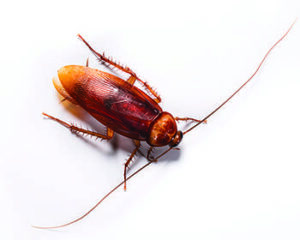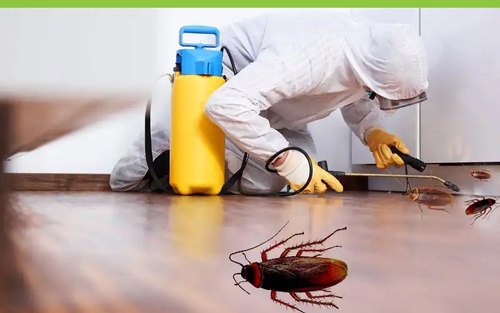Discover the Most Reliable Roach Control Near Me Options
Discover the Most Reliable Roach Control Near Me Options
Blog Article
Discovering Numerous Parasite Control Approaches to Attain Long-Term Success in Managing and Protecting Against Problems in House
Efficient parasite control in houses requires a diverse strategy that balances instant outcomes with lasting sustainability. By checking out a variety of methodologiesâEUR" including environment-friendly options, chemical alternatives, and Integrated Bug Administration (IPM) âEUR" home owners can develop strategies that not just attend to present problems however likewise avoid future occurrences. This expedition discloses the potential of ingenious techniques and emerging modern technologies that may redefine typical parasite administration. What might these developments involve, and exactly how can they change our understanding of insect control?
Recognizing Bug Control Approaches
Although insects have actually existed alongside people for centuries, the techniques utilized to manage them have evolved significantly over time. Recognizing these approaches is critical for successfully taking care of and stopping infestations in household areas. Insect control methods can be extensively categorized into 3 key approaches: cultural, mechanical, and chemical.
Social approaches focus on changing the setting to lower parasite tourist attraction and breeding. This includes proper cleanliness, crop rotation, and habitat alteration, which can substantially reduce pest populaces. Mechanical control includes physical obstacles and catches to manage parasites straight, such as screens, vacuums, and sticky traps. This approach is commonly favored for its non-toxic nature and instant outcomes.
Chemical control continues to be among the most commonly made use of approaches, including the application of chemicals to get rid of insects. While reliable, this strategy demands mindful consideration of safety, prospective resistance growth, and ecological influence. Integrated Pest Monitoring (IPM) incorporates these techniques to produce an alternative strategy, advertising long-term parasite prevention and very little damage to helpful organisms. By recognizing these numerous pest control approaches, homeowners can make informed choices that advertise efficient administration and preservation of their living areas.
Eco-Friendly Insect Control Solutions
How can property owners effectively manage pest troubles while lessening their environmental influence? Eco-friendly insect control services offer a sustainable option to conventional approaches, prioritizing the health of both locals and the surrounding environment. These options often use all-natural ingredients and methods that interrupt parasite behavior without presenting unsafe chemicals right into the environment.
One effective approach is making use of helpful pests, such as ladybugs and lacewings, which prey on common bugs like aphids and termites. In addition, diatomaceous earth, a natural powder made from fossilized algae, can be sprayed in areas where pests are widespread, serving as a desiccant that harms bugs while staying risk-free for humans and animals.
Additionally, applying safety nets is vital. roach control near me. Property owners can guarantee proper sanitation by sealing access points, preserving tidy home, and handling waste properly. Planting pest-repellent herbs, such as mint and basil, can additionally prevent undesirable visitors
Eventually, eco-friendly pest control remedies empower house straight from the source owners to resolve invasions sensibly, cultivating a more secure living environment while promoting eco-friendly equilibrium. By embracing these techniques, people can add to a healthier planet while efficiently taking care of pest-related concerns.
Chemical Insect Control Options
While environmentally friendly services are significantly popular, there are situations where chemical insect control choices may be necessary for reliable administration of extreme infestations. Chemical controls, including pesticides, fungicides, and herbicides, are typically utilized to rapidly decrease pest populaces and mitigate damages to homes and gardens.
These items can be identified into two main classifications: synthetic chemicals and all-natural pesticides. Synthetic chemicals, such as pyrethroids and neonicotinoids, are crafted to target specific pests, offering quick knockdown effects. Alternatively, natural chemicals, stemmed from plant or mineral sources, might offer a more environmentally pleasant alternative while still supplying effective outcomes.
Before using chemical bug control, it is essential to perform a comprehensive evaluation of the invasion and determine the specific insect entailed. This guarantees that the selected chemical is both efficient and appropriate. In addition, home owners must stick to safety standards, including appropriate application techniques and individual safety equipment, to decrease health threats and environmental influence.
Integrated Pest Administration Strategies

Organic control involves making use of all-natural killers or bloodsuckers to manage pest populaces. Presenting ladybugs can help control Learn More aphid problems. Cultural techniques, such as crop rotation, hygiene, and environment adjustment, aim to make settings less for pest survival and recreation. Physical controls, like traps or obstacles, can stop pests from going into homes or harmful crops.
Surveillance and assessment are crucial parts of IPM, permitting timely interventions based upon pest population thresholds. By prioritizing safety nets and utilizing a mix of techniques, IPM not only addresses present infestations but his explanation likewise cultivates long-lasting bug monitoring solutions that safeguard both human health and the atmosphere. This thorough approach is necessary for lasting bug control in residential areas.
Emerging Technologies in Insect Control
The introduction of arising technologies in bug control is changing the means we manage pest populaces, offering ingenious solutions that boost effectiveness and performance. Advancements in precision agriculture, for example, use data analytics and sensor innovations to keep an eye on pest activity and environmental conditions, enabling targeted treatments that lessen chemical usage.
In addition, drones outfitted with imaging innovation are being utilized to evaluate big areas for infestations, giving real-time information that help in prompt decision-making. In addition, biotechnology is playing an essential role, with the development of genetically customized organisms (GMOs) designed to lower bug populations while protecting valuable types.

Finally, smart traps and monitoring devices geared up with IoT capabilities enable property owners and pest control professionals to receive instantaneous signals regarding insect task, helping with prompt activity. Jointly, these arising modern technologies not just enhance pest management end results but additionally add to environmental sustainability by decreasing reliance on typical chemical treatments.

Conclusion
In final thought, efficient bug control demands a complex technique that includes social, mechanical, and chemical approaches. The assimilation of these approaches is vital for achieving long-lasting success in pest management.
Report this page